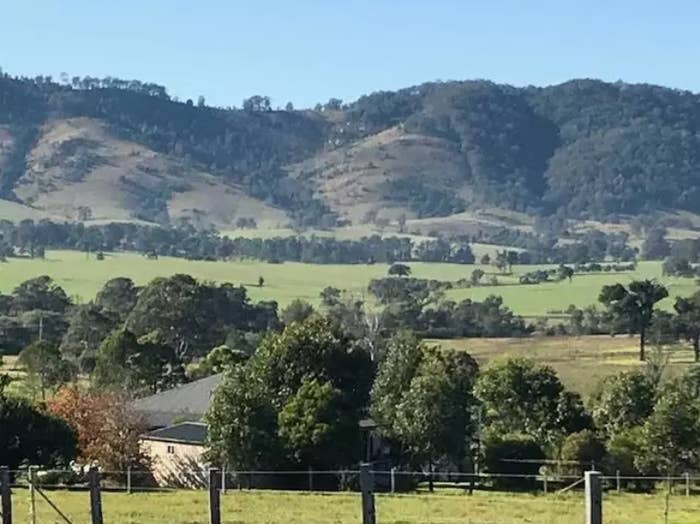
A landmark decision knocking back a proposed new open cut coal mine, partly due to the urgent need to act on global climate change, has been handed down in Australia.
Chief Justice Brian Preston delivered the ruling in the New South Wales Land and Environment Court on Friday morning, finding that the proposed mine in New South Wales would be in the "wrong place at the wrong time" and should not go ahead.
The ruling is a significant win for community group Groundswell Gloucester and their lawyers at the Environmental Defenders Office, who fought to intervene in the case and introduce climate change evidence.
A three week hearing in August 2018 canvassed whether or not the proposed Rocky Hill Coal Mine should be built in Gloucester, a town of about 3,000 people inland on the Mid North Coast of New South Wales.
The mine was first knocked back in December 2017, but Gloucester Resources Limited (GRL), the privately owned company behind the proposal, was granted the right to appeal the decision.
Summing up his judgement on Friday, Preston said: "In short, an open cut coal mine in this part of the Gloucester valley would be in the wrong place at the wrong time.
"Wrong place because an open cut coal mine in this scenic and cultural landscape, proximate to many people’s homes and farms, will cause significant planning, amenity, visual and social impacts.
"Wrong time because the greenhouse gas emissions of the coal mine and its coal product will increase global total concentrations of greenhouse gases at a time when what is now urgently needed, in order to meet generally agreed climate targets, is a rapid and deep decrease in greenhouse gas emissions. These dire consequences should be avoided."
At the hearing, climate change expert professor Will Steffen testified it was an "obvious conclusion" based on the evidence that no new fossil fuel developments could go ahead if the world was to meet the climate targets set down in the Paris Agreement — that is, to keep the global temperature rise this century below 2C.
Climate Council CEO Amanda McKenzie said she was "thrilled to see the law catching up with the science".
“The NSW Land and Environment court has effectively ruled that coal – just like tobacco and asbestos – is bad for us," she said in a statement following the ruling.

Preston described Gloucester and the proposed mine site as "scenic and serene" and made a number of other findings about the negative impact of the proposed mine.
Aboriginal elders testified at the hearing that the proposed mine would have adverse effects on their land and culture, by disturbing spiritually significant Aboriginal sites and also altering the landscape.
"The rehabilitation of the mine will not heal the harm to Country and culture," Preston wrote. "The scale or degree of change from the existing condition [of the land] as a result of the social impact of the project will be substantial ... The Aboriginal people place high importance on the existing landscape and its contribution to their life and culture."
GRL had "substantially overstated" the economic and employment benefits of the mine, which remained uncertain, Preston said.
"There is also a temporal concern. The benefits of the mine will be received for the life of the project only, while the disbenefits of the mine may persist for longer. Even after mining operations have finished, the damage to the clean and green environment of the Gloucester area, and the image of such an environment, may endure."
He also found the proposed mine would likely affect the health and wellbeing of local residents by causing concern about dust, noise and light pollution.
